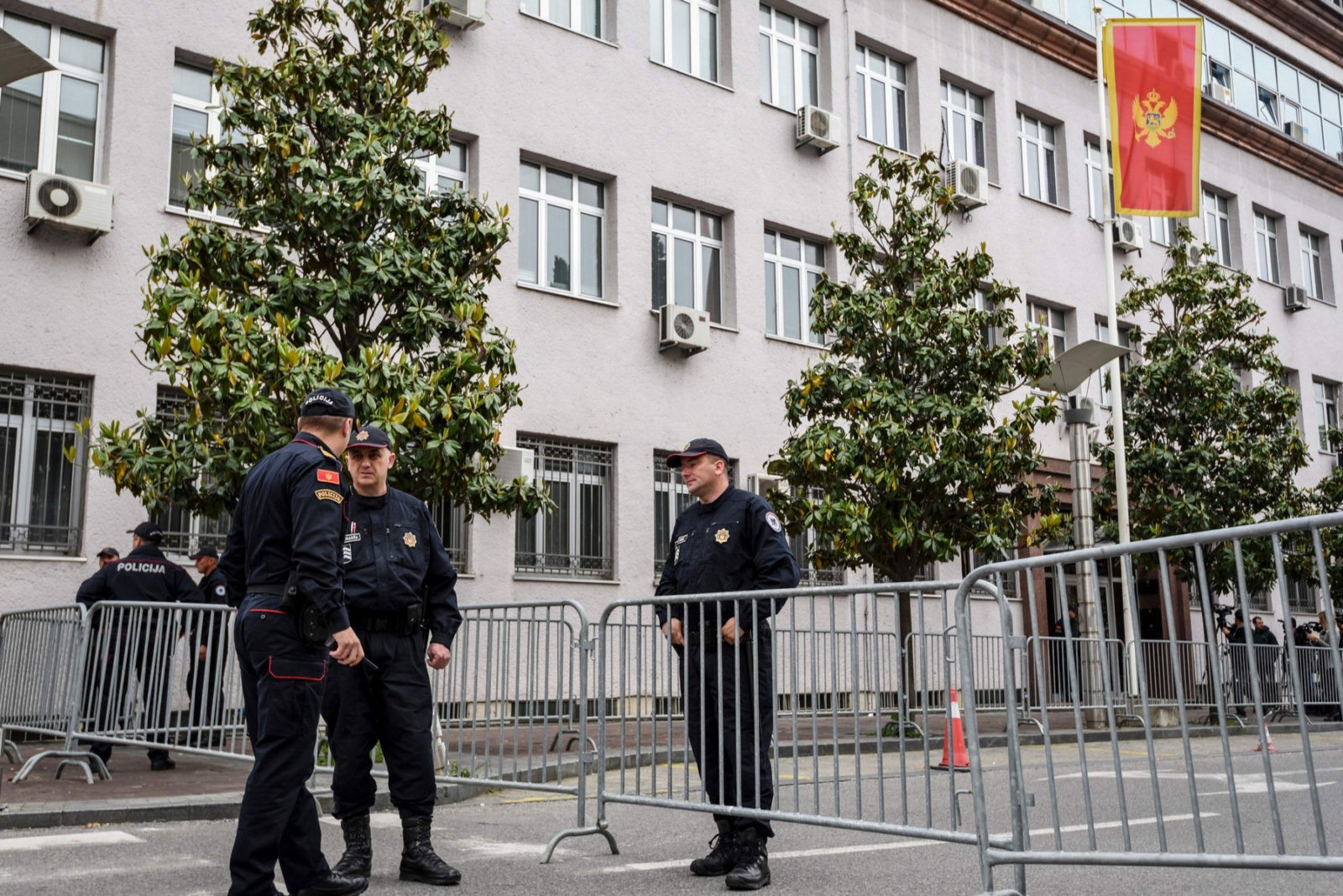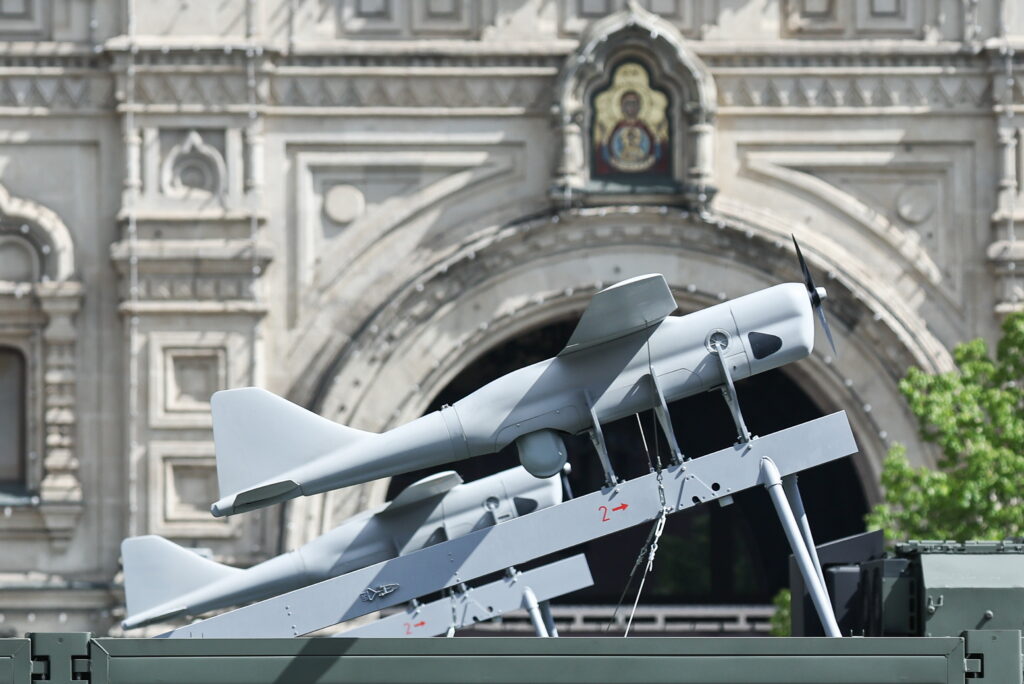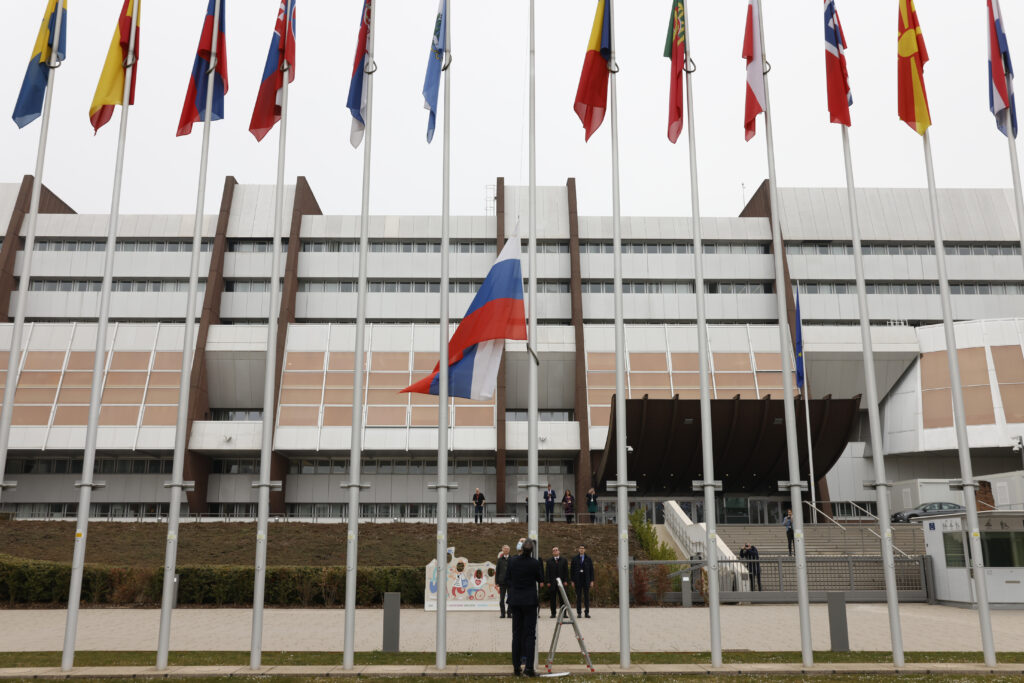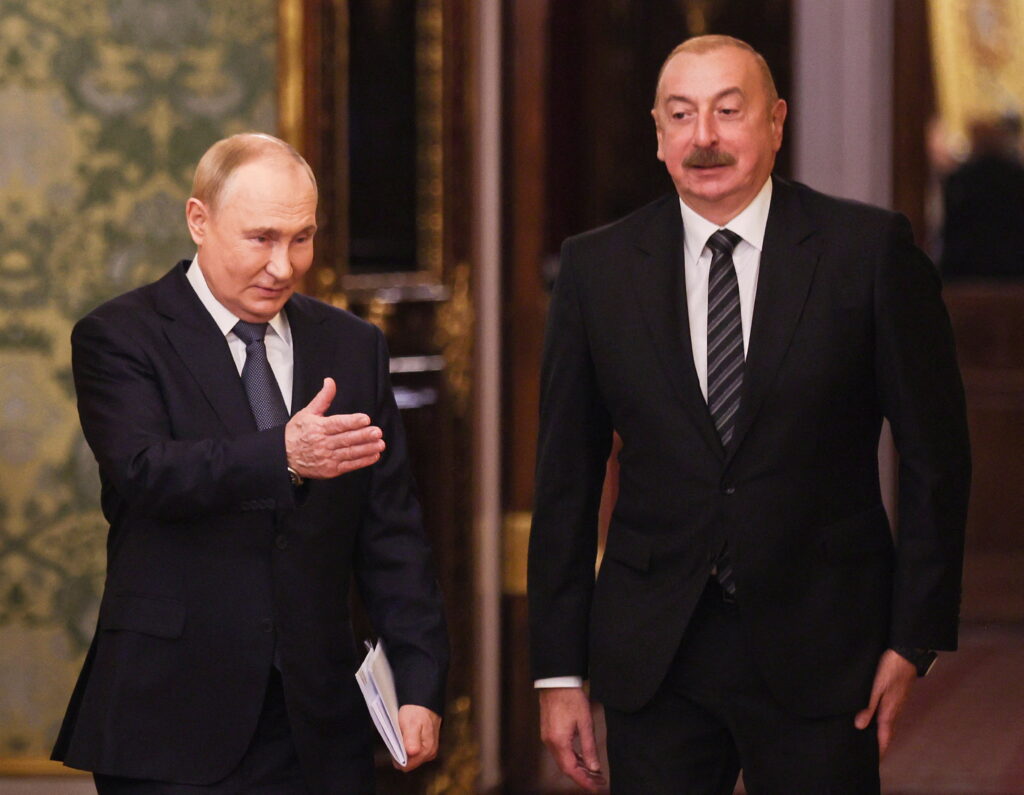On May 9, a Montenegro court finally ruled on a high-profile case concerning an attempted coup in the Balkan state during parliamentary elections on October 16, 2016. Among the main defendants were two Russian citizens. One was Eduard Shishmakov, for whom an international arrest warrant had been issued under the surname Shirokov. Shishmakov had been issued a Russian passport just two months before the Montenegrin elections. The other man was Vladimir Popov, whose actual surname was identified during the course of investigations as Moiseev. The two men were sentenced in absentia to 15 and 12 years in prison respectively. After almost two weeks, Russia’s Ministry of Foreign Affairs responded to the verdict, dismissing «the possibility of Russia’s official involvement in illegal acts.»
Besides the two Russians, the verdict concerned another 12 defendants. Among them were Milan Knežević and Andrija Mandić, two leaders of the Democratic Front, a Montenegrin opposition party. In recent years, Knežević and Mandić had developed warm relations with the Russian authorities, including powerful figures in Moscow and even in Chechnya. They were each sentenced to five years’ imprisonment.
The trial dragged on for more than a year and a half. According to the prosecution the two Russians, while in Serbia in 2016, gathered a group of Serbian citizens for the purposes of launching an attack and provoking chaos during a rally immediately after the vote in Podgorica, the Montenegrin capital. The group was to seize control of the country’s parliament building and other state institutions, paving the way for the Democratic Front to come to power. The party would then disrupt Montenegro’s integration into NATO (the country nonetheless joined the military alliance in 2017.) Most of the suspects were detained in Montenegro on the evening of election day.
A key witness in the case was Serbian nationalist Saša Sindželić. He gave himself up after the conspirators’ plan failed and became a cooperating witness. Sindželić is considered a crucial link in establishing relations between Russian citizens and the Serbian group. He declared in court that he had received over € 200,000 from Shishmakov with which to purchase weaponry, communication devices, and uniforms of the Montenegrin special forces which the conspirators were to wear. A significant amount of evidence was provided to the investigators by the Serbian security services; these included wiretaps of telephone conversations, photographs of meetings, military hardware and accessories.
On October 24, 2016, Serbia’s Prime Minister Aleksandar Vučić (who is now president) announced that the country had been cooperating closely with the Montenegrin authorities, and had detained several individuals who were preparing to carry out «illegal acts» and had been spying on Montenegrin leader Milo Djukanović. Vučić hinted strongly at a «foreign element» to the case, while strongly denying that Serbia had any association with the plotters.
Three days later, leaks emerged that several Russian citizens implicated in the Montenegrin case had been «expelled» from Serbia. These leaks coincided with a visit by Nikolai Patrushev, head of Russia’s security council, to Belgrade; during his stay in the Serbian capital, Patrushev apparently held closed door negotiations with all the key players in the country’s leadership.
At the courtroom in Montenegro, the defendants insisted on their innocence. Nevertheless, the court accepted all the allegations against the men apart from the accusation that they had been preparing to assassinate Djukanović. All of the defendants were found guilty of terrorism and of creating a criminal organisation. A separate investigation into the activities of Montenegrin citizen Ananije Nikić continues. Nikić, an interpreter for the leaders of the Democratic Front, received asylum in Russia in November 2017. An investigation into money laundering during the 2016 vote is also ongoing; according to the prosecutor, the Democratic Front allegedly received $ 15 million from overseas during the election period.
In February of 2017, the Russian authorities dismissed as «unfounded» any accusations concerning an attempt to interfere in the electoral process by force. But Moscow did not try to deny the existence of the Russian citizens Shishmakov (Shirokov) and Popov (Moiseev). Given the fact that the two men’s photographs and biographical details had surfaced in the press by this point, doing so would have been pointless.
The Russian side submitted written statements to the Montenegrin authorities. Shishmakov (Shirokov) confirmed that he had met Sindželić on two occasions, claiming that he visited Belgrade, as he put it, to prepare an article about the role of the Danube Flotilla in the First World War and to collect materials about Russian soldiers buried in the city. Vladimir Popov (Moiseev) declared that he visited the Serbian capital in order to prepare a series of materials and photoessays about Serbia’s architectural heritage.
The authorities in Moscow tried as hard as possible not to draw attention to the decision of the Montenegrin court. The Ministry of Foreign Affairs, which had made declarations about the case more than once, chose not to issue a separate statement once the final verdict had been reached. Instead, the reaction was indirect, and took the form of a response to a question posed by a journalist from the minor online news portal EurasiaDaily on May 22nd. «We regard this court decision first and foremost as one element of an ongoing domestic political conflict aimed at eliminating all opponents of the ruling authorities. This unfriendly step can only serve to deepen the negative aspects of Russian-Montenegrin relations, which are currently at their lowest point in their entire history,» read the response of the Russian foreign ministry’s information and press department.
Russia’s ruling party United Russia chose not to make any comments (the party has maintained a close partnership with the Democratic Front for several years.) Incidentally, since 2016 United Russia released no less than 50 statements mentioning Montenegro, but has refrained from commenting about the country since last July, the month Sergey Kiselyak left the party leadership. Of all Russian public figures, Kiselyak was by far the most engaged when it came to all matters Montenegro.
The Montenegrin case is particularly important for one reason. Namely, it is the first time when Russian policy in the Balkans has been mentioned in the context of a «terrorist operation.» Although the prosecution and judge did not explicitly state that the Kremlin gave the order to unleash a «bloody Maidan» in Montenegro, the essence of the case is clear: Djukanović’s opponents were assisted by Russian citizens in possession of varying identification documents; such documents can only be provided by state organs.
Official ties between Russia and Montenegro started to go awry after Podgorica joined the West’s sanctions on Russia after the annexation of Crimea in 2014. By 2015 political dialogue, institutional and interregional contacts had practically ground to a halt. At the same time, Moscow had been intensely interested in Montenegro’s 2016 parliamentary elections from as early on as 2006, when the country declared independence.
Despite the wide diversity of Montenegrin politics, the election campaign of 2016 essentially became a duel between the pro-Russian Democratic Front, which chiefly comprised pro-Serbian parties, and Djukanović’s ruling Democratic Party of Socialists, which had held power in Montenegro since the late 1980s. With Moscow’s assistance, the Democratic Front demanded that Montenegro’s future NATO membership be put to a referendum; the result of such a vote was hard to predict, given that supporters and opponents of the idea were more or less equal in number. Moreover, the 2016 election campaign turned out to be a very expensive affair by the standards of Montenegro’s opposition parties, whose sources of financing soon came under scrutiny by investigators.
A year before the election, Djukanović had spoken of attempts by his opponents to seize power with the support of «external forces.» The Montenegrin leader made these statements at a time of mounting anti-government protests in Podgorica, during which Russia’s Ministry of Foreign Affairs spoke out in defence of «alternative points of view» in Montenegro.
In an attempt to curtail their opponents’ contacts with influential Russians, the Montenegrin authorities banned Deputy Prime Minister Dmitry Rogozin, who had promised that Montenegro would regret its decision to join NATO, from entering the country. Podgorica also issued an entry ban on Konstantin Malofeev, an oligarch who is suspected of supporting radical movements across the Balkans.
It was Tsargrad, a television channel belonging to Malofeev, which waged an aggressive campaign against Djukanović on the eve of and following the Montenegrin election. «The criminal prime minister Djukanović is deliberately wrecking Montenegro. A brotherly orthodox country is being driven into the abyss,» warned Leonid Reshetnikov live on air. Reshetnikov, longtime director of the Russian Institute for Strategic Studies, was dismissed from his post following the broadcast.
Montenegro first became acquainted with the «orthodox millionaire» Malofeev in spring 2015. That year, he organised the procession of holy fire (an Orthodox Christian tradition held on the day before easter — ed.) to the Cetinje Monastery and received a blessing from Metropolitan Amfilohije Radović, a Serbian Orthodox cleric known for his radical views. Incidentally, Radović also played a role in the court case on the attempted coup; his role in those events is the subject of much speculation. Branka Milić, one of the defendants in the case, was released from custody after the metropolitan intervened and gave a personal guarantee to the judge. Milić eventually fled and requested asylum at the Serbian embassy in Podgorica.
Amfilohije is often called a «soldier in a cassock. He is a strong supporter of Greater Serbian nationalism, rejects Montenegrin national identity and statehood, opposes European integration and refers to NATO as a terrorist organisation. Attempts to hold him legally accountable for inciting religious, national, and racial hatred have come to nothing. The metropolitan is also one of Montenegro’s most prominent Russophiles, and propagandises a positive image of Russia and its decisive role in winning the Second World War. Consequently, he is a guest of honour at a number of events important to Moscow, alongside other pro-Kremlin figures such as the Night Wolves bikers.
In the last months before the elections of 2016, it looked as though Russia had already consigned the Montenegrin regime to history. Politicians in Moscow did not hide their interest in Montenegro’s opposition forces uniting and toppling Djukanović, whom the Russian Ministry of Foreign Affairs had reproached for «bowing» before the West. Meanwhile, Russian state media published falsified stories attesting to electoral fraud during the Montenegrin vote, some of which cited a non-existent publication as a source.
The fallout from the attempted coup occurred during a heated pre-electoral atmosphere during which the Russian authorities openly attempted to widen the divisions in Montenegro’s already highly divided political arena. Following the elections, which the Democratic Front lost by a significant margin, United Russia declared that there were good grounds for not recognising the legitimacy of the election.
At the beginning of 2017, when the Montenegrin authorities’ investigation into the conspirators’ «bloody scenario» was in full swing, the leaders of the Democratic Front were received in Moscow by Russia’s Deputy Minister of Foreign Affairs. The Montenegrin delegation even visited the Chechen capital of Grozny, where they met with high ranking figures from Ramzan Kadyrov’s entourage. Montenegro had never before known such active attempts to cultivate exotic international ties, which were all the more surprising given that the Chechen ruler was under sanctions at the time. Observers back in the Balkans tied these unexpected Chechen contacts with an attempt to divide the ruling coalition in Montenegro by appealing to Muslim politicians within its ranks to go over to the opposition.
In March 2017 the Russian Ministry of Foreign Affairs reacted with some concern when a Montenegrin court reached a verdict in the case against Orhan Šahmanović, chairman of the Plav Municipality, who had visited Chechnya with leaders of the Democratic Front. Šahmanović was sentenced to a year in prison on charges of abusing public office and embezzling € 11,000 of public funds. According to officials in Moscow, the case was a «clear example of how the Montenegrin judiciary are nothing more than [the authorities’] puppets.»
Many of the events of 2016 strongly suggest that an attempt at destabilisation was actively discussed. So, did the defendants in the coup case really represent a serious threat? Is it possible that events would have spun out of control?
In recent years, much has been said about «negative» Russian influence in the Balkans. The former Yugoslavia is sometimes referred to as a geopolitical frontline between NATO and Russia. Since the annexation of Crimea, Moscow’s attempts to counteract western influence in the Balkans have become increasingly direct.
Moscow is looking for support from the region’s diverse conservative political forces. It is interested primarily in organisations which promote ties to Russia, Eurasian integration, and military neutrality as an alternative to the pro-western course of local elites. «Pro-Kremlin» forces in the region have generally similar goals (chief among them being a rejection of European integration and a pivot towards Russia as a leading partner) and are engaged in discrediting «western values,» frequently using nationalist rhetoric. From influential politicians such as Bosnian Serb leader Milorad Dodik to marginal organisations such as Zavet (a Bosnian Serb veterans’ NGO whose name translates as «The Oath» — ed.) or Serbian Honour (a Bosnian Serb paramilitary unit — ed.), a particular reason for these players’ significance to the Kremlin is their overt hostility towards anything and everything liberal, non-Serb, and non-orthodox.
Furthermore, several pro-Moscow groups, whether the Democratic Front in Montenegro or the Dveri movement in Serbia, have repeatedly demonstrated their lack of willingness to compromise and readiness for armed confrontation. One recent example was the storming of the state television building in Belgrade by Dveri leader Boško Obradović, whose name is strongly associated with radical protest in Serbia.
Relying on conservative forces to further its influence in the Balkans may certainly raise Moscow’s profile, but Russia represents just a two percent share in global GDP, and is under sanctions. Without military levers of influence to fall back on, it looks like the Kremlin’s Balkan goals are far too ambitious. Meanwhile, the decline in western influence in the region more closely depends on levels of western investment and political support from the EU and USA than it does on Russian activity. Neither is a military standoff with NATO in the Balkans a promising strategy, given the many international agreements and bilateral treaties which regulate security in the region, and Moscow’s reliance on local forces without the weight to bring to such a confrontation. In short, Moscow is not a key provider of goods, services, technology to the Balkans. But most crucially of all, it does not provide stability.
Propaganda, special operations, and derogatory statements aimed at politicians it objects to can only have limited dividends for the Kremlin. Balkan politicians have varying dependence on domestic and international political contradictions, varying attitudes towards the speed of regional integration processes, and varying levels of interest in cooperating with Russia. But the truth is that politicians in the region are not prepared to risk a confrontation with key investors and political partners solely for Moscow’s sake.
Therefore, Moscow’s urges for Balkan states to respect «democratic norms» are entirely unnecessary, given that Russia has shown no commitment to doing so itself. Attempts by the Kremlin to resolve these questions with special operations and other murky methods are not going to alter the region’s trajectory.










